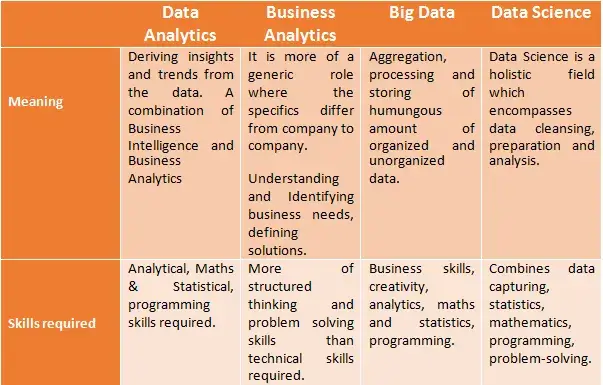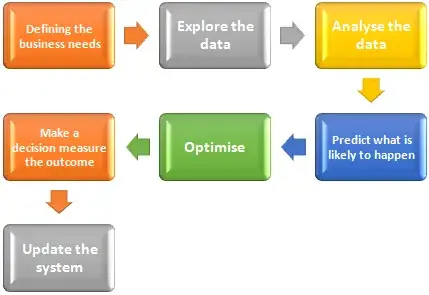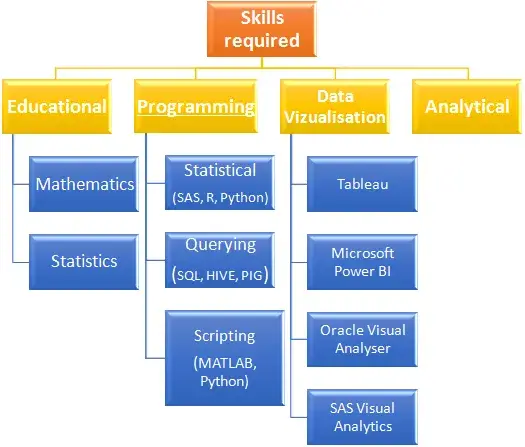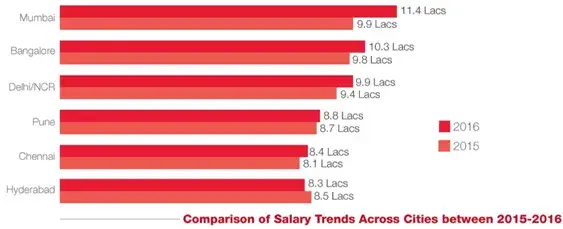What is Data Analytics?
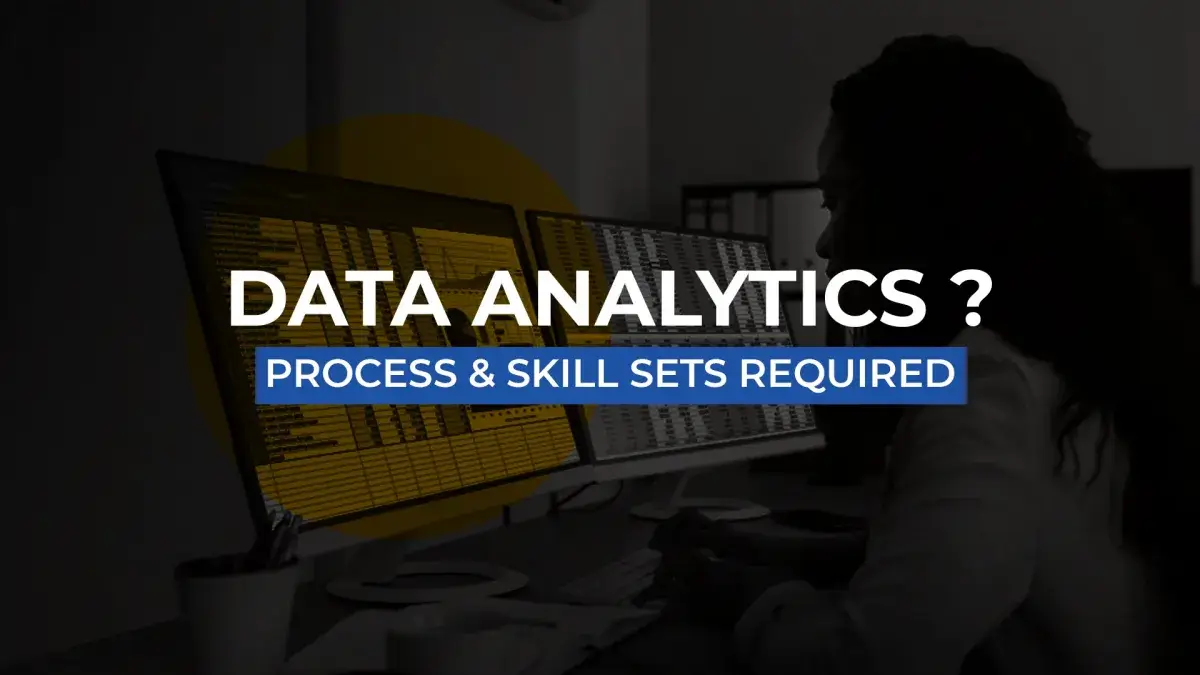
Here's What We've Covered!
Data Analytics – Process and skill sets required
Quite simply put-“Data Analytics is the process of scrutinizing data sets in order to draw inferences about the information they contain, with the help of advanced systems and software.” But the reason that we are discussing Data Analytics here is due to the fact that it has taken the job scenario in India by storm. You just name the field and you will find the application of Data Analytics there.
But wait a minute, are we clear as to what are the basic layers of this career? When we talk of Data Analytics, we also hear about Big Data, Data Science, Business Analytics and related terms. That’s too confusing, to say the least! So before we start digging into the details of Data Analytics as a career, let us understand the major difference between Data Analytics, Business Analytics, Big Data and Data Science
Process leading up to Data analytics
Now that we know about the basic differences between Data Analytics and the related fields, let us now understand the process of Data Analytics before exploring it as a career option.
(1) Defining the business requirements:
The first step in Data Analytics is to clearly define the business problem and quantify it as far as possible. The problem can also be broken down into smaller goals for easy resolution. At this stage, the analysts should gather relevant and adequate data to address the problem. The questions that need to be answered are-“What is the data that is required?”, “How much data is required?”, “Where can this data be found?.”
(2) Exploring the data:
This stage involves cleaning the data, identifying the missing data and smoothening outliers. Removal of outliers from the dataset is a crucial task because outliers can impact the accuracy and authenticity of the model. After this, the data is plotted on time series graphs, scatter diagrams etc. The data is sliced, diced and analysed in layers to gather as much insight as possible to address the business need.
(3) Analysing the data:
At this stage, the analyst uses various statistical and programming methods to draw actionable insights from the structured data. The data is compared using different assumptions and these are tested using hypothesis testing.
(4) Predicting the outcome:
At this stage, the analyst will model the data using predictive techniques such as decision trees, neural networks and logistic regression. Various predictive models will be run and the most optimal one will be chosen based on accuracy and practicality.
(5) Optimising the results:
At this stage analyst will run what-if’ scenarios on the predictive model coefficients and outcomes to run, using targets set by managers to determine the best solution, with the given constraints and limitations.
(6) Decision making and measuring the outcome:
Based on the optimal results and solution model, the analyst will have to take decisions for realising the organisational goals. After a considerable period of time, the outcome will be measured and corrective action needs to be designed accordingly.
(7) Update the system with final results:
After all this, the results are finally updated in the system. The new insights derived and the decision now becomes part of the database for future analysis of other business problems.
Skills required for data analytics
The above table shows that Data Analysts require a plethora of skills. While Mathematics & Statistics forms the base of analysis, you have to acquire the requisite programming and Data Visualization skills readily. Due to the huge data sets involved in analytics, it is imperative to learn various programming languages. Data visualization is an equally important aspect because we know that visuals appeal more than plain numbers. Presentation of data in a graphical or visually interactive format with the help of above tools help managers to draw more insights and results in better decision making.
However, it does not mean that Data analytics is only for IT Professionals. Even non-IT professionals are suited to this role provided they have good understanding of statistics and cutting edge analytical skills. The programming skills can be acquired over a period of time. The secret to success is not just in learning the programming and vizualisation tools, but understanding the logic and reasoning behind using each of these tools, which make you a good analyst.
Remuneration for Data Analysts
The Analytics India Salary Study 2016 – conducted by AnalytixLabs & Analytics India Magazine reveals the following data:
Salary Trends across Cities
1. The average analytics salary across 6 metro cities in India for year ending 2016 was Rs 9.5 Lacs across all experience level and skill sets.
2. Analytics professionals are highly paid in Mumbai, at an average of Rs 11.4 lakhs per annum, slightly higher than Bangalore at Rs 10.3 lakhs.
3. Usually captive centres (Eg: ecommerce, retail, telecom) pay higher salaries to retain their talent.
Scope for Data Analytics in India
On one hand, there is incredible growth opportunity in India because from here the analytics industry will surely move on an upward trajectory. But on the flipside, the rapidly changing industry requirements imply that professionals have to be on edge and continue to acquire new skills to stay abreast of latest developments—-a sure shot way be on top of the game.
In the near future, increasing salary in Data Analytics may see professionals from other sectors switching careers and perfecting their skills. If you want to be a part of this new growth story, you can explore our NSE Certified Business Analytics course as well as PGD in Data Science.
Resent Post
>
Best Study Abroad Courses for Commerce Graduates
>
Emerging commerce career options in India (2026): From CA to Data Analyst
>
ACCA Opportunities You Didn’t Know About – Think Beyond Audit!
>
Which Courses After 12th Commerce With High Salary Are in Demand Worldwide?
>
How to Find ACCA Jobs Online After Qualifying: Real Portals, Tips & Career Guidance
Follow Us For All Updates!


